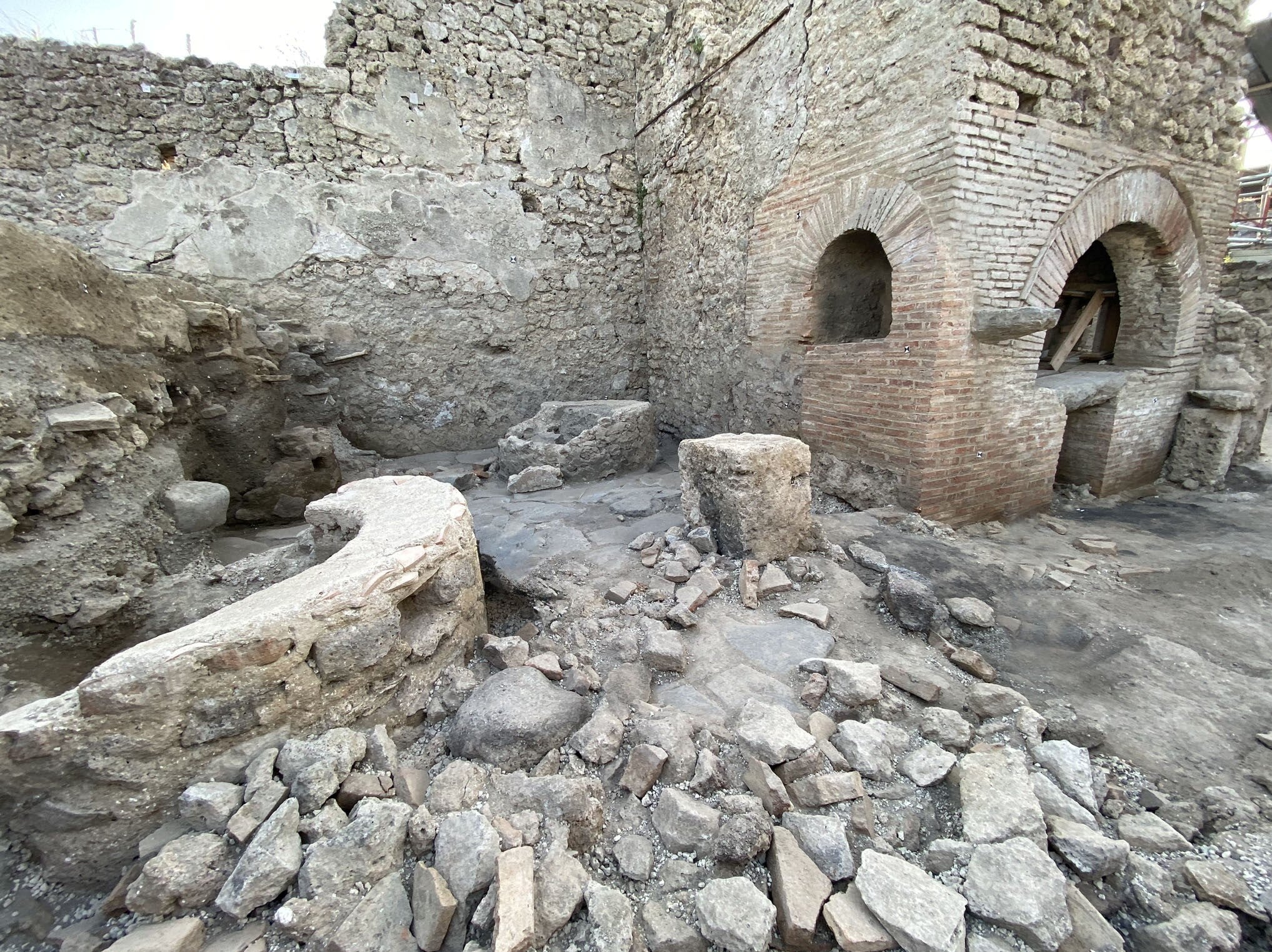Archeologists unearth ancient bakery ‘prison’ in Pompeii
Small windows barred with iron expose the ‘brute violence’ slaves were subjected to in the historic city

A bakery prison has been unearthed in the ruins of the ancient city Pompeii, archeologists said in they regard as the “most shocking side of ancient slavery”.
Enslaved people were exploited to grind grains and make bread in the cramped bakery with iron-barred windows and no exit to the outside world.
The bakery was found in a home as part of a larger project in the Regio IX area of the Pompeii archaeological park in southern Italy. It reveals more evidence on the daily life of Pompeii’s enslaved people who are often sidelined in history lessons of the ancient city.
Indentations in the floor were also discovered, pointing to the movement of the animals who were forced to walk around blindfolded for hours, the archaeological park statement said.
A bakery 'prison' has been uncovered in Ancient Rome's Pompeii
“It is a space in which we have to imagine the presence of people of servile status,” Pompeii’s director Gabriel Zuchtriegel said.
“It is the most shocking side of ancient slavery, the one devoid of both trusting relationships and promises of manumission, where we were reduced to brute violence, an impression that is entirely confirmed by the securing of the few windows with iron bars.”
The home is believed to have been undergoing renovations when Mount Vesuvius erupted in AD79, destroying Pompeii as it was submerged by volcanic ash.
A view shows the interior of a “bakery-prison” where slaves and donkeys were locked up to grind the grain needed to make bread
Thousands of Romans who had no idea they were living beneath one of Europe’s biggest volcanoes were killed.
As the eruption buried the city in a thick layer of ash, many of its residents and buildings were preserved.
The site has seen a burst of recent archaeological activity aimed at halting years of decay and neglect, largely thanks to a recently concluded 105-million-euro ($113 million) EU-funded project. In August, archeologists discovered a small bedroom in a Roman villa near Pompeii that was almost certainly used by slaves.
An exhibition dedicated to the enslaved people of Pompeii will begin at the archaeological park on 15 December.
Subscribe to Independent Premium to bookmark this article
Want to bookmark your favourite articles and stories to read or reference later? Start your Independent Premium subscription today.

Join our commenting forum
Join thought-provoking conversations, follow other Independent readers and see their replies